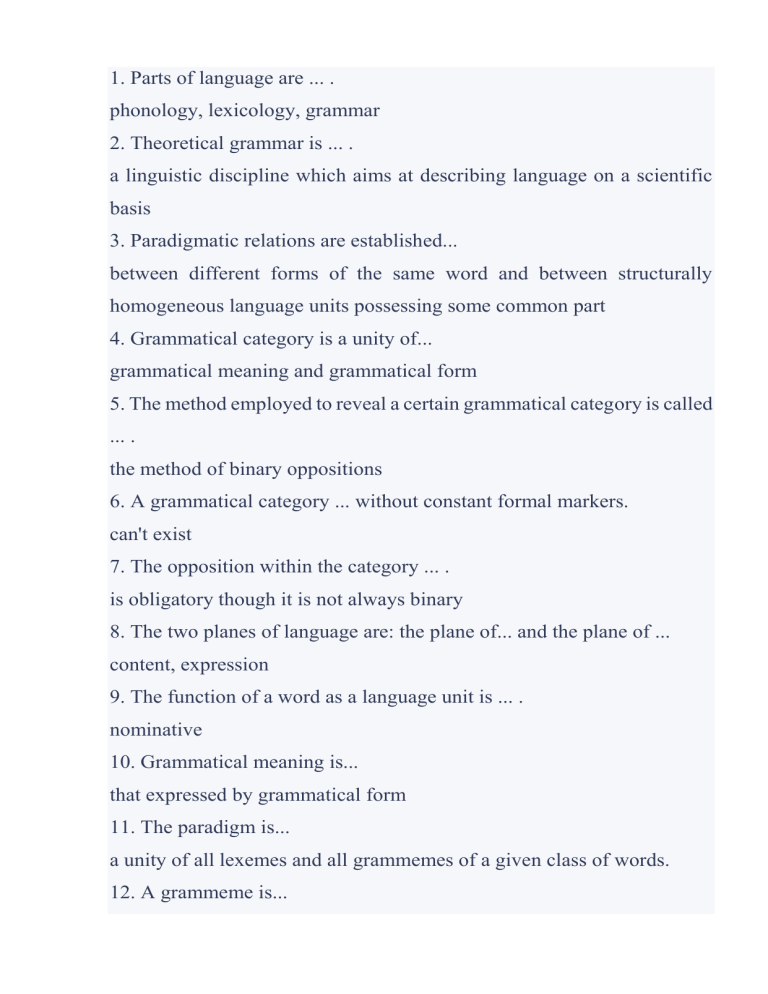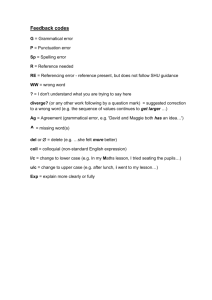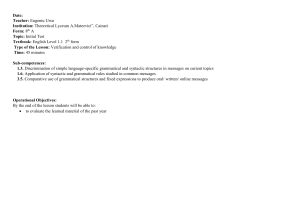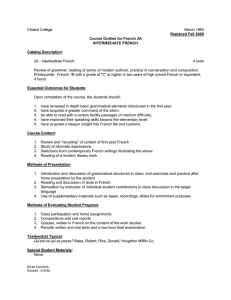
1. Parts of language are ... . phonology, lexicology, grammar 2. Theoretical grammar is ... . a linguistic discipline which aims at describing language on a scientific basis 3. Paradigmatic relations are established... between different forms of the same word and between structurally homogeneous language units possessing some common part 4. Grammatical category is a unity of... grammatical meaning and grammatical form 5. The method employed to reveal a certain grammatical category is called ... . the method of binary oppositions 6. A grammatical category ... without constant formal markers. can't exist 7. The opposition within the category ... . is obligatory though it is not always binary 8. The two planes of language are: the plane of... and the plane of ... content, expression 9. The function of a word as a language unit is ... . nominative 10. Grammatical meaning is... that expressed by grammatical form 11. The paradigm is... a unity of all lexemes and all grammemes of a given class of words. 12. A grammeme is... a value of a grammatical category. For example, singular and plural are grammemes of the category of number. 13. An oppositional reduction is... a case when a grammatical opposition is reduced to one member (weak or strong) 14. Analytical grammatical forms consist of two elements ... . the notional and the functional 15. A paradigm can embrace... simple synthetic and analytical forms 16. The peculiarity of English affixation is... that words are homonymous with roots 17. The suffix ity in the words necessity, peculiarity is ... . lexico-grammatical 18. The term "..." is only applied to every morpheme serving to derive a grammatical form and having no lexical meaning of its own. inflection (ending) 19. The function of the morpheme as a linguistic unit is ... . significative 20. Morphology and syntax may be... paradigmatic and syntagmatic 21. Conversion of nouns into adjectives is... adjectivization 22. What is the procedure of the distributional analysis? The analyzed text is divided into recurrent segments consisting of phonemes which helps to establish the environmental features of the morphs. 23. What is a grammatical form? (all) means of expressing grammatical meaning 24. What is an allomorph? An allomorph is a positional variant of a morpheme. (its concrete manifestation) 25. Morphemic distribution... is co-occurrence with other morphemes. 26. The method of immediate constituents is a method of morphological analysis of words. 27. The theory of analytical cases was introduced by ... . M. Deutchbein 28. Qualitative adjectives ... . denote qualities inherent to things of the real world 29. ... claimed that in English there are two degrees of comparison: the positive and the relative. A.I. Smirnitsky 30. Analytical forms more/most + Adjective and less/least + Adjective are called direct and ... comparison. reverse



